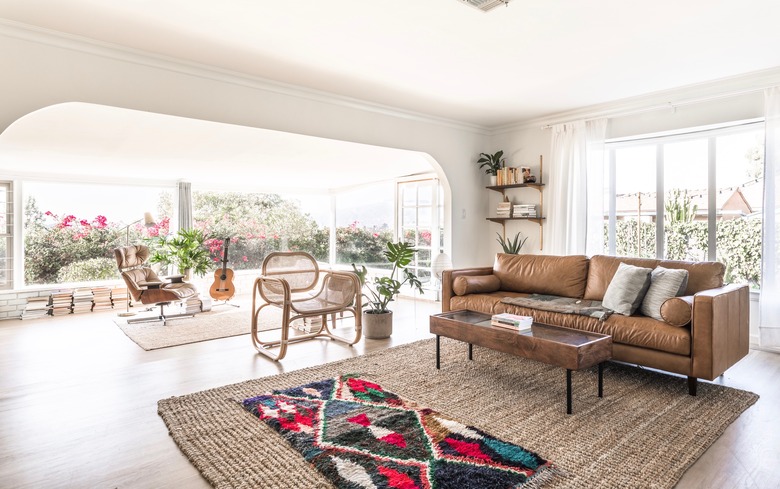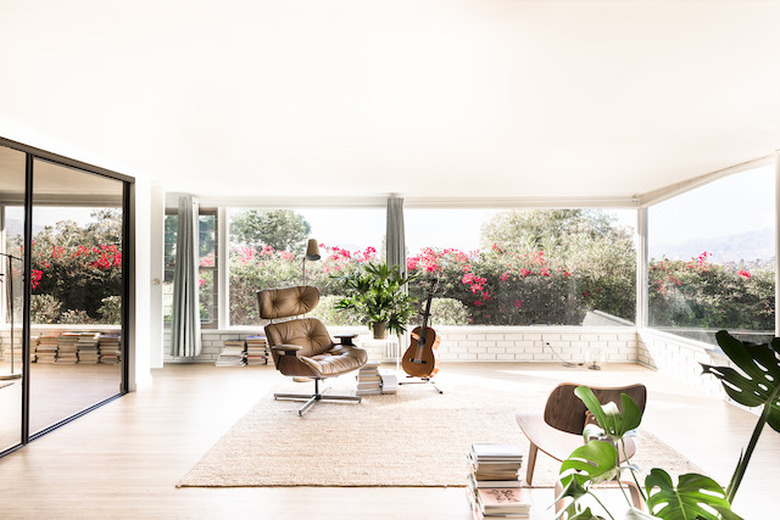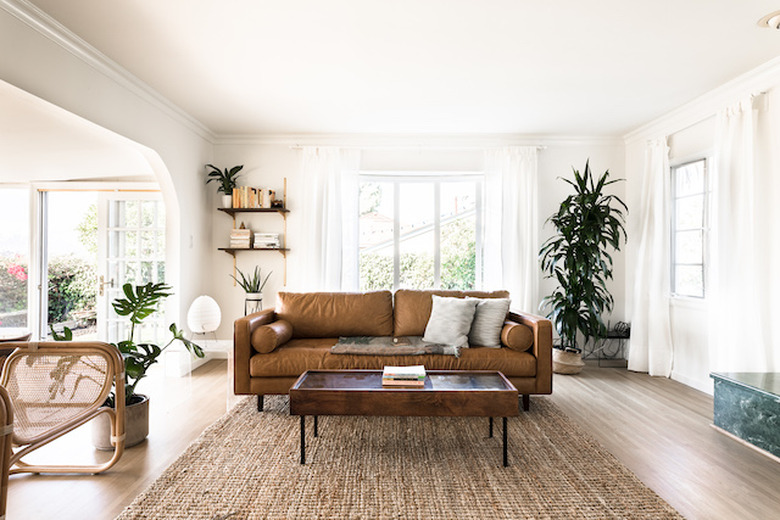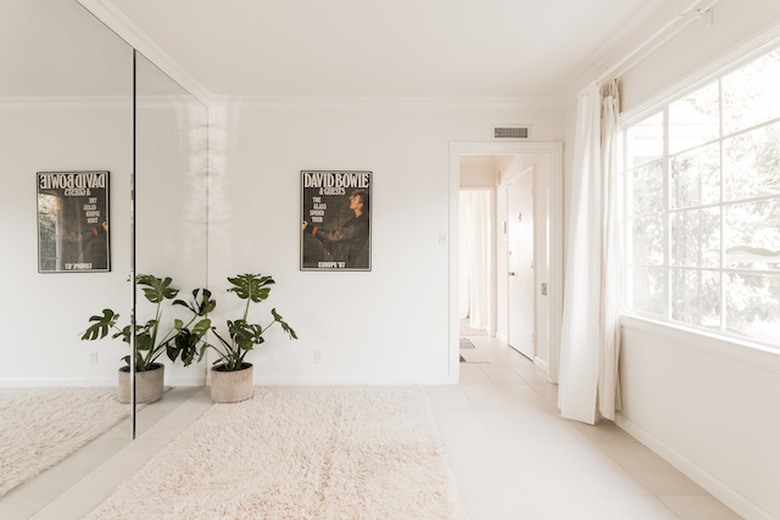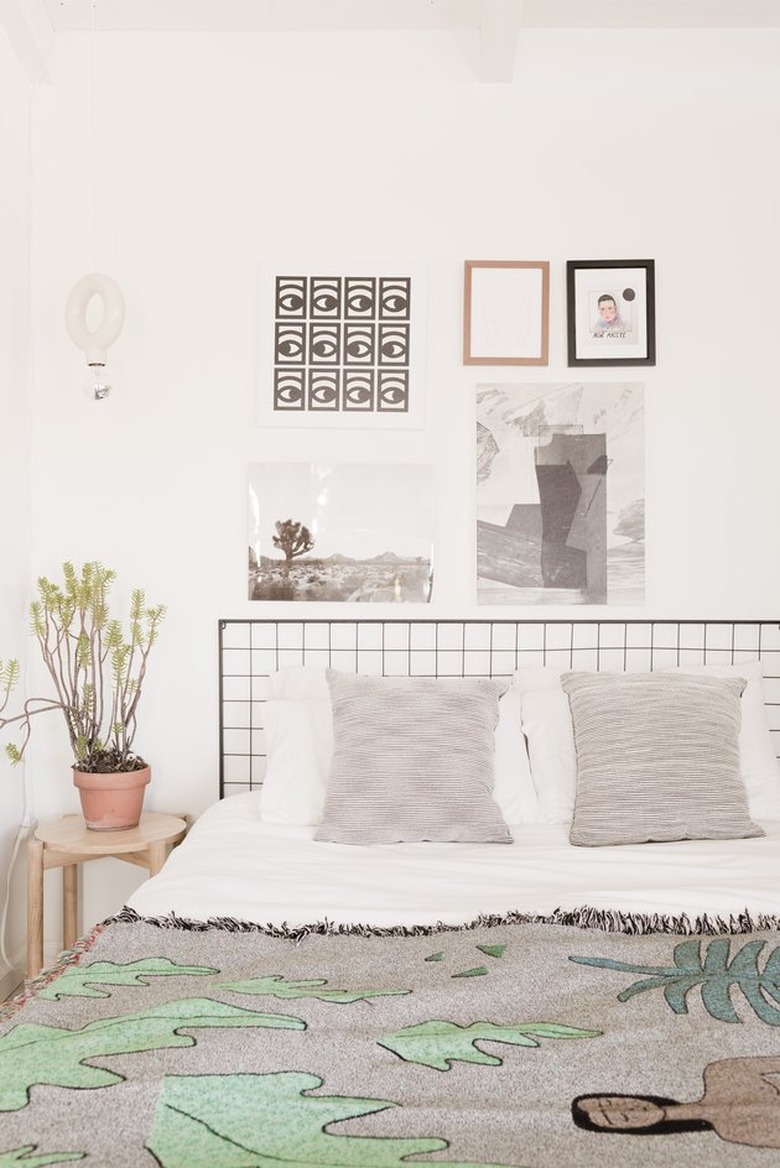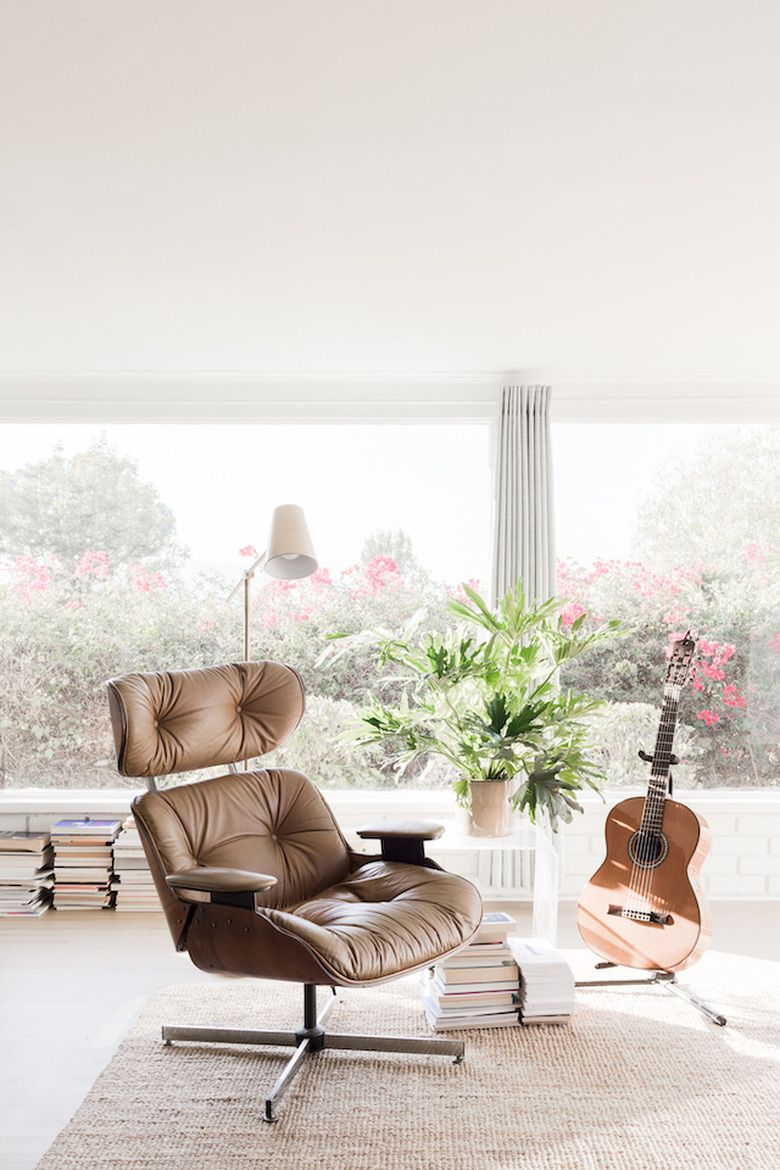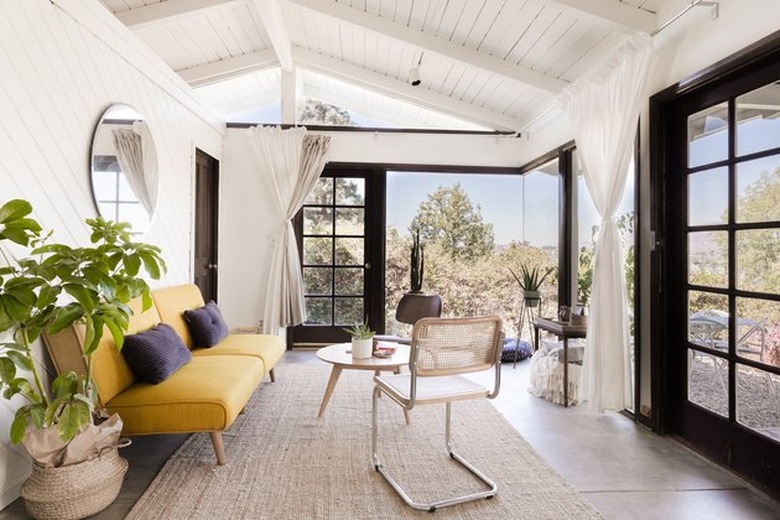Want Extra Money? Follow Our Guide On How To Rent Out Your Home For Photo Shoots
Just over a year ago, my boyfriend and I moved into a midcentury modern house in Mt. Washington and began creating a home together. As two creative freelancers, we were already thinking up ways our home could generate passive income so that we could have the freedom and flexibility to pursue our creative careers and alleviate some of the financial burden of owning a home. So, we signed up for Peerspace — a site that allows you to rent unique spaces for photoshoots, film shoots, events, and meetings. Think of it as the Airbnb of photoshoots.
Once we listed our home, we immediately started getting inquiries for shoots and events and eagerly accepted all of them, which turned out to be a huge learning experience (read: disaster) that helped us hone our skills and learn by doing. We had everything from a packed 30-person dinner party in our tiny yard to a semi-truck that got stuck in our narrow street and blocked traffic. Our neighbors were less than thrilled. We made many mistakes, quickly learned, and improved with each shoot. We're over a year in now and we regularly host a handful of shoots every month. This typically covers our mortgage and then some, something we never thought would be possible before! Accumulating enough glowing 5-star reviews and activity on our listing eventually garnered us Peerspace Power Host status, which we earned through a lot of trial and error. Now, hosting shoots has become second nature to us and we can pretty much handle anything when it comes to all aspects of a shoot, from inquiries to clean up!
Renting out your home to a crew of strangers can be intimidating, but it is doable if you're willing to be flexible. If you've got a space you'd like to rent out, I've put together some tips on how to maximize the profitability and appeal of your home without destroying it and driving your neighbors crazy.
Design Your Space to Be Photoshoot-Friendly
Design Your Space to Be Photoshoot-Friendly
Your space needs to be versatile and stylish enough to be able to host shoots of all kinds. You're not going to appeal to everyone, so choose a style and stick with it. There's a lot of competition out there. If you advertise your space as a bohemian treehouse, make sure it's the most bohemian treehouse ever. If you need inspiration, you can search Peerspace and look at other listings that are similar to yours to get the lay of the land. We were fortunate enough to have just moved in, so we approached furnishing our space specifically for the purpose of renting it out for shoots (of course, we liked it, too!). If your home is filled with sentimental objects, irreplaceable or expensive items, family photos, and clutter that's not easy to move around, you might find this difficult. We bought most of our furniture on sale, at flea markets, or in vintage stores so we wouldn't be devastated if something was ruined. Most of our stuff comes from places like HD Buttercup, Urban Outfitters, Overstock, and Etsy. Because we're not too precious with our furniture, we always tell crews to move things around as they see fit as long as they put it back afterwards. When in doubt, keep it minimal and fill it with plants; often, brands will bring their own accessories and items to style the shoot with.
Pro tip: Make sure your space has amenities like A/V equipment, a rolling rack, and a steamer to appeal to prospective guests.
Get Professional Photos
Get Professional Photos
Before you take photos, stage your space as if you're about to host a shoot and clean up. You don't want a rogue sock or stack of mail in your photos. Your listing's photos need to look professional, well-lit, and abundant, meaning you're going to want to show multiple angles of every available room to prevent the inevitable request to see additional photos. If you do a good job capturing your listing, you might even reduce the amount of scouting requests you'll get. (Scouting is when a guests asks to tour the house before they book. This is common with agencies and photographers who want to be certain your space has everything they need). Hire a professional photographer and consider it a worthy investment for your fledgling home rental business.
Pro tip: Once you start booking, you can often ask (or just search yourself) for photos from the shoots in your space and add those to your listing as well to bolster credibility. It's helpful for other brands to see the creative ways your space was used in various advertisements and social media posts; this will inspire confidence in them to book as well.
Communication
Communication
If you want to be successful, you have to respond to each and every message in a timely manner. I get message notifications on my phone so I can answer people's questions ASAP. Peerspace posts your response rate publicly, so don't wait too long to respond. You'll start to notice that people ask the same questions, so it helps to create a templated response that you can tweak according to each person. This really speeds up communication. And be sure to ask questions, too! This isn't a one-sided transaction, you need to feel comfortable with whomever you let into your space. You can ask questions like: What's the shoot for? How many vehicles will you have? What kind of equipment will you be bringing in? You want to know every little detail ahead of time before you accept a booking. Once you do, be sure to follow up with them the day before to go over any house rules or just to check in.
Prepping for a Shoot
Prepping for a Shoot
The day before your shoot, you'll have to set aside time to clean or hire a cleaner. Your space should be immaculate for a shoot, including places you think people might not care about. This means cleaning your bathroom (you never know when someone is going to shoot in there!). Make sure to put any valuables in storage and remove anything you don't want to have lying around. Set out your house rules somewhere visible and send your guest a quick message, even if it's just, "Looking forward to the shoot tomorrow. I'll be onsite to let you in. Let us know if you have any questions!" When your guests begin to load in on shoot day, try to greet everyone you can and make sure you take your point of contact on a tour of the house so they know how to turn the A/C on and where to put their garbage. During the shoot, you should either stay and supervise or be close by with your phone out in case any issues arise.
House Rules
House Rules
This is my most important piece of advice: You make the rules. Production crews, by nature, can sometimes be loud, disorganized, and not always super mindful of the space they're in. It's understandable, since they're just trying to do their jobs. So it's your job as the host to lay down the law in order to manage expectations and mitigate risk. Almost every rule we have is to protect our home and our neighborhood. Some of our rules include having a strict 15 person maximum in our home so that our shoots won't disturb our neighbors. Additionally, we only allow two cars parked on the street and we don't allow trucks or vans of any kind. Guests are not permitted to loiter in front of the house, but we do provide a designated area for their breaks. We don't allow shoes in the house, but we do provide booties!
In order to make sure your rules are understood, have them visible on your listing, and include them in your initial messages and as a printout onsite. Also be sure to include contact information and other important details like where the fire extinguisher is located. If a guest comes by for a scout, repeat your rules to them. This might sound like overkill, but you need to do everything you can to make sure your voice rises above the noise of the many moving parts of a shoot. In the unfortunate event that someone defies your house rules, don't be afraid to respectfully let them know and be sure to charge them for damaged or missing items when you assess the state of your home post-shoot.
Love Thy Neighbors
Love Thy Neighbors
The only way to make your home rental business long term is to always keep your neighbors in the front of your mind. Respecting them should be your biggest priority (along with making sure your house doesn't burn down!). If you host regular shoots, your neighbors will notice and some of them might even get annoyed or, worst case scenario, complain. This is understandable. It's their neighborhood, too. Do whatever you can to make sure that you're not disturbing them. You can do this by setting a limit on the parking spots you'll take up on the road, and requesting that crews be quiet and efficient when loading in and loading out. If they're waiting for an Uber, tell them not to wait on the street. A couple of run-ins with our neighbors was enough to make us hypervigilant when it comes to managing shoots. This has meant saying no to any shoots we feel might be too much or too loud or too unpredictable. It's just not worth it. If something does happen and your neighbors do complain, take responsibility and apologize with a nice bottle of wine and a handwritten note. Give all of your neighbors your phone number and encourage them to reach out if they ever have any problems. Just remember: Shoots are temporary, but neighbors are forever.
